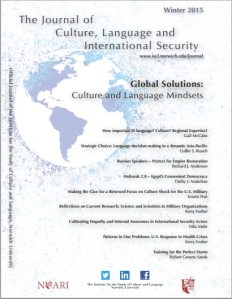“The best way to predict the future is to design it.” – Buckminster Fuller

Image: keoni101/Flickr
There is a future for wearable technology beyond the Apple Watch, and it can be for social good. On March 31, 2015, nearly 40 participants came together for Technology Salon New York City where we discussed the future of wearables in international development.
Here are my two summaries of the thought-provoking discussion:
We Can Design the Future of Wearables for Social Good, Huffington Post
Development, data, and ethical design for our wearable futures, Wait…What? [co-author with Linda Raftree]
As we wrote, “The rapid evolution of technology urges us to think about how technology affects our relationships with our body, family, community, and society. What do we want those relationships to look like in the future? We have an opportunity, as consumers, makers and planners of wearables for the international context to view ourselves as stakeholders in building the future opportunities of this space. Wearables today are where the Internet was during its first five mainstream years. Now is the perfect time to put our stake in the ground and create the future we wish to exist in.”
